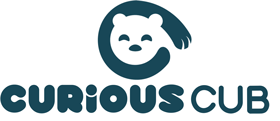Most children say their first words between 12 and 14 months. However, babies are able to understand language much before they can produce spoken words.

What is baby talk?
After about 6 months of age, your baby will begin to change from their coos to babbles. They might have certain sounds for specific words. These words consist of baby talk. Oftentimes parents or caregivers continue to say these words back to the baby instead of the real word, assuming that’s what they will understand. Using baby talk slows down your child’s language development. Research says it’s better to use correct grammar and full sentences. Even if your toddler doesn’t understand all of it yet, you are laying the foundation for language. They will begin to make connections between concepts and words.
How to get your baby to talk
- Talk to them often
- Get down to their level while talking to them
- Use signs to accompany spoken words
- Repeat commonly used words often
- If you know your child’s babble means a certain word, say the word back to them. For example if your child says “mum mum” you can say, “Oh, you want some water?” instead of you calling water mum mum too!
Some ways to support your talking baby
1. Slow down
Give your baby a chance to process a question you have asked. Ask only once and wait 10 seconds, which might seem like a long time, but your baby needs that. Repeating the question often will overwhelm them. It is not that they haven’t heard you, it’s just that they need some time.
2. Repeat
If your baby uses a made up word or say half the word like wa for water, repeat the full word after them
3. Use parentese
Parentese is different from baby talk and is a high pitch voice parents or caregivers use when talking to their children. This grabs the child’s attention and they are more likely to listen and respond. Parentese uses real words unlike baby talk that uses made up words.
4. Exaggerate
When talking to your child, use an exaggerated tone and pitch. Research shows that not only are children more like to respond to this, but also children who have been exposed to exaggerated sounds are more likely to have a larger vocabulary.
5. Read
The importance of reading can never be emphasized enough. Be sure to face your baby while reading to them. Use books that are filled with interesting images and have frequently used words. You do not have to read the whole book if your child loses interest. One page at a time is plenty. Point to the picture and say the word. Wait to see if your child repeats it.
6. Conversations
Talk to your baby about everyday things. There’s no right time to begin. Some people start talking to their babies right from birth. Studies show that the number of words a baby understands is directly proportional to the frequency of commonly used words they hear.
7. Sing
Sing songs to your baby. Pause and wait for them to fill in the blanks. The catchy tunes and repetitive nature of the songs encourage babies to participate.
Children are like sponges. They absorb as much as they are exposed to. Using rich vocabulary in your conversations with your baby will result in them having a larger vocabulary and a flair for the spoken language.
